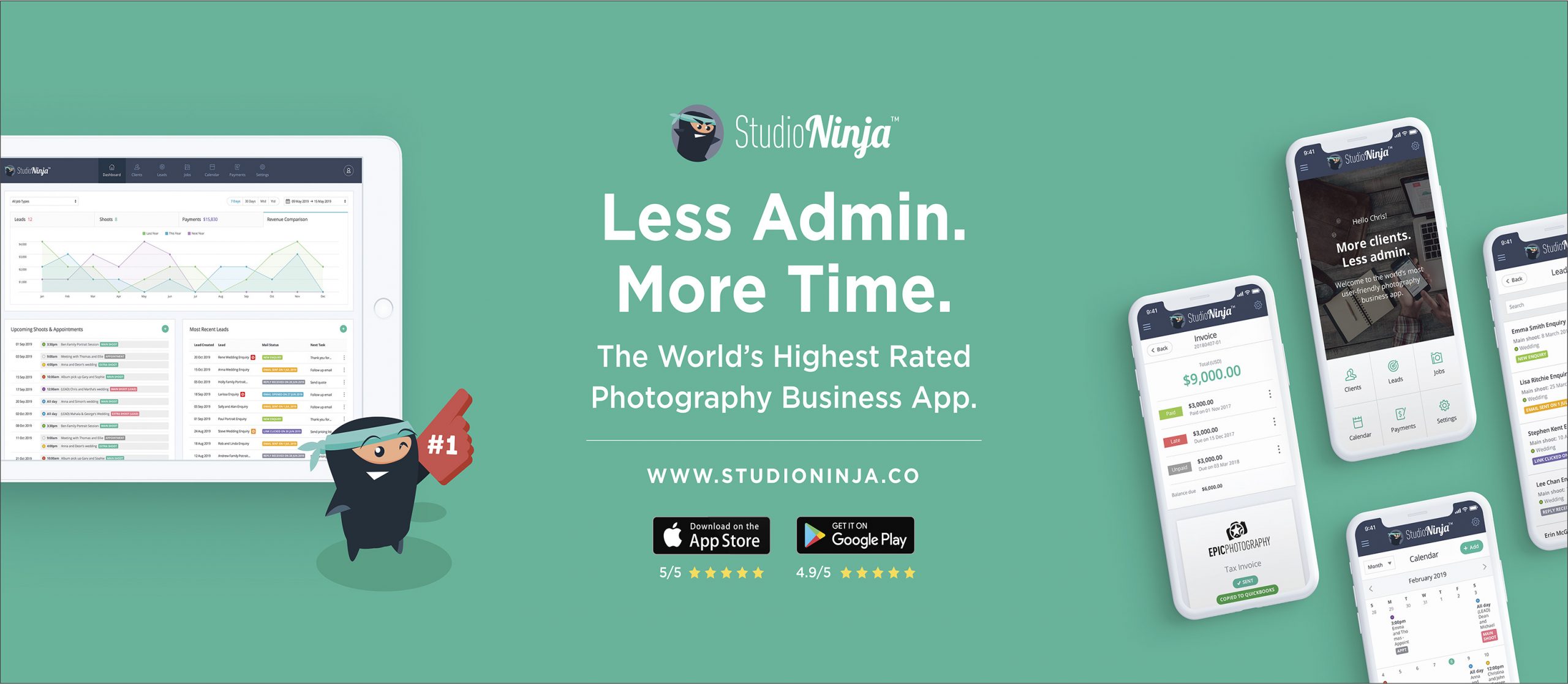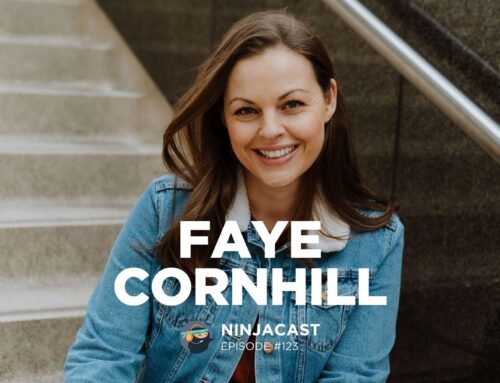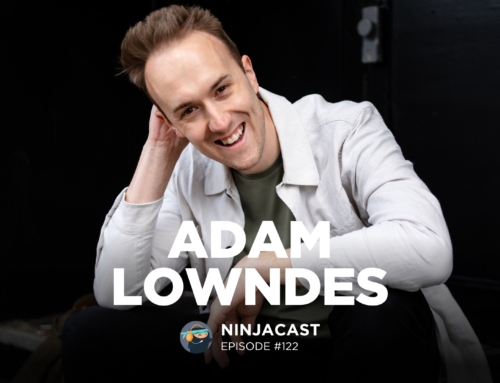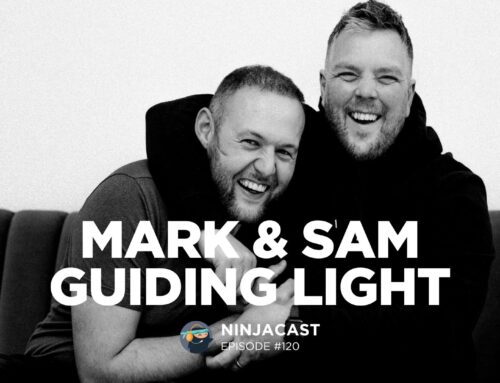044: Bernie Griffiths – How to Systemise & Monetise Your Photography Business Whilst Separating Yourself In The Market
October 30, 2021
“If you’re going to take bold bets, they’ve got to be experiments. If they’re experiments, you don’t know ahead of time whether they’re going to work, and by their nature, they’re prone to failure. But a few big successes compensate for dozens and dozens of things that don’t work, and that’s what photographers should remember in business. You’ve always got to be testing and measuring. “
BERNIE GRIFFITHS
Hey everyone! It’s Sally here, from Studio Ninja. Today’s episode is all about Bernie Griffiths!
Born in England and starting as a professional photographer at just 16 years of age, working for the local newspaper and photographing his first wedding, Bernie continued his work for a Cruise line photographing passengers while travelling around the world and managing a photography team onboard throughout a vast career in photography.
Bernie has over 10 years of international photography business coaching experience and has coached and mentored hundreds of photographers around the world, racking up over 5,000 one hour Zoom coaching sessions with photographers. Not only this, but he is a published author of “Success Secrets of a Professional Photographer” and “Quantum Leap My Life.”
Check out some of the biggest points from Bernie’s interview below:
How can photographers separate themselves in the market?
I do get excited about this because I got very frustrated probably two or three years ago. I think of my career when I think of the products I was producing, how I was getting the products and all of that. I see photographers, and for me, they’re all the same. They’re just all the same. Why is that? Photographers are like sheep, they all follow one another. They all do the same thing. Right? They all have the bio, and I read yours, Sally, I know you’re married to Mark and you’ve got a couple of dogs and that, but so is everybody else. Someone else likes wine and chocolate, someone else likes walking barefoot on the sand. That’s not where I come from. I come from the reality of business. People don’t care about you. They only care about themselves. What’s in it for them?
So, we have to project ourselves as, A, different, and we can do that very simply. There’s a good example that we’ve done recently. I’ve always believed in a one page website. One page website. We don’t need much information. We just need to give people who look at us a little tour of us. A little bit. They get a feel of what we’re about. Are we expensive? Are we cheap? What products do we sell? Whatever. So, we put one of these together recently, and I could send you the link. It’s one of my clients, Oliver Johns in Cardiff, who’s fantastic.
But you won’t see an about me with Oliver. You’ll see very little about Oliver. You’ll just see the business. So, it’s like looking in the window. That’s one thing. But that’s the good news. The good news is because all photographers are the same, that means it’s easy to step away from them. In my business, when photographers zigged, I zagged. When they zagged, I zigged. It’s very easy to do. Just do the opposite of what your competition’s doing.
I’ll just tell you some examples, right, where I come from, because it’s very black and white, and that’s a pun, because we only do black and white. That’s the first step. If you work with me, I don’t care what you’re doing now, but you’ll have to start just doing black and white. All right? That’s the first step. I’ll tell you where that revelation came from. After spending 20 or 30 years in business, I did thousands of portrait shoots. I did thousands of portrait sales, did thousands of weddings and had a very successful business, but I got tired of it. It was the same old, same old, so I decided to retire. My wife, Wendy, said to me, “No, you can’t because I married you for breakfast, not for lunch and dinner.”
So, I went back with a different mindset. I thought, “I’m sick of this colour stuff, calibration. What the hell is this spider I bought to calibrate my screen so I match the lamp’s screen,” and whatever. “[inaudible 00:00:20:32] do black and white. I’m going to be very raw. There’s not going to be much gray in my black and white. Forget the gray scale. This is black and white”. I had a whole new attitude. So, I went back and I thought, “Who am I?” At that time, I was being challenged by a lot of younger, attractive women, like yourself, coming along, and were a threat to me because it was mainly a male dominated industry. Female photographers were coming into weddings, which scared me as well. So, I thought, “Who am I?”
I decided I was getting old and grumpy. I decided if I was in the medical industry, I’d be a Mr, which means I’d be very experienced and a specialist. So, I decided from that day, I’d do black and white. It also made it easy for me to tell any potential clients what I do, on the phone or anytime. I could say to them, “I specialize in black and white wall portraiture,” and a story. Who’s got a tagline they can put together that explains exactly what they’re about? That’s what I was about, black and white. I specialized in black and white wall portraiture.

What should photographers be aiming for with their businesses?
As I said in Michael Gerber’s book, build a business that you can sell, what it means is but also you’ve got a business that you don’t have to work in, and it works for you, whether you are there or not. I built a business like that, but I decided to stay in it. I didn’t have to. That’s what I’ve got with some of my clients, we got one client who’s just opened a second studio, one client, two clients, three clients who’ve just put on other photographers. So, now they find themselves going on holiday and still turning over heaps of money while they’re away.
But it’s all possible. That’s what I’m saying. It’s all about systems and processes and simplicity. I can give you the perfect example of one of my clients who’s taken it to the different level, and this has blown me away as well. When they approached me for coaching, they’ve been three, four years doing the fine art thing, doing the big canvas painterly look with a big gold frame. They were getting good average sales, like five to eight, 9,000, but they’re only doing one or two a month. $10,000 a month is nothing. So, I put them on my program. All that went. Bang, gone. Colour gone, black and white only. No big fancy frames anymore, acrylic. We revamped the studio, an introverted photographer who didn’t want to do selling.
So, I said, “You’ve got to do the in person sales.” She says, “I don’t want to do that. I’ve got this lady that can do it on Zoom.” This is going back two years or more. So, I said, “All right, let’s see how she goes.” It worked out brilliantly doing her sales so that she doesn’t do any in person sales, she only shoots. All the sales is done by Zoom with this lady, and Jen has just put on this other photographer as well, so she can do more sessions, and she outsources her files, and that’s it. The incredible growth in that studio in 15 months, which you’ll see in that brochure, because Jen’s in Texas where we are having the conference next year, turning over a million dollars in 15 months.

What would you say are the benefits of a photographer having this process of stepping away form the norm?
The benefits are enormous, because, to give an example, one of the earlier clients that I took to black and white, he said now he feels he’s different than everyone else and he’s got rid of 80% of his competition. So, he’s got more confidence to put his prices up because he’s a specialist. So, everything on the world’s black and white. No colour is shown.
There’s a lot of shifts photographers need, obviously, to be successful. You know? You can either do it as a hobby, a half hobby, a semi hobby, or you can do it as a real thing, as I say, whether you go from passionate to obsessing, and they say the place you should sit is passionate, close to obsessive. That’s the exciting thing. You’ve got to have a natural drive.
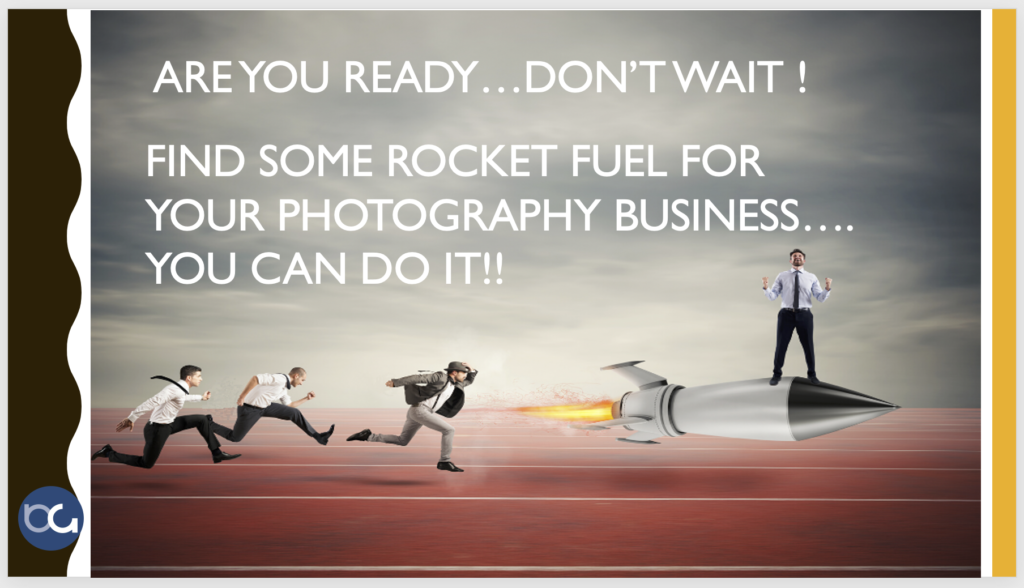
Thank you!
Thanks again to you all for joining us and a huge thanks to Bernie for joining us on the show!
If you have any suggestions, comments or questions about this episode, please be sure to leave them below in the comment section of this post, and if you liked the episode, please share it using the social media buttons you see at the bottom of the post!
That’s it for me this week, I hope you all enjoyed this episode.
See you soon,
Sally
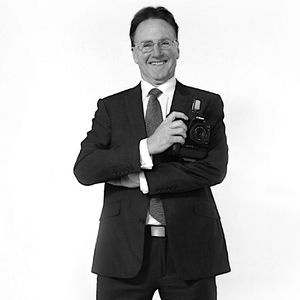
About Bernie Griffiths
Born in England and started as a professional photographer at just 16 years of age working for the local newspaper and photographing his first wedding. Bernie continued his work for a Cruise line photographing passengers while travelling around the world and managing a photography team onboard.
Bernie has over 10 years of international photography business coaching experience and has coached and mentored hundreds of photographers around the world, racking up over 5,000 one hour Zoom coaching sessions with photographers. Not only this, but he is a published author of “Success Secrets of a Professional Photographer” and “Quantum Leap My Life.”
